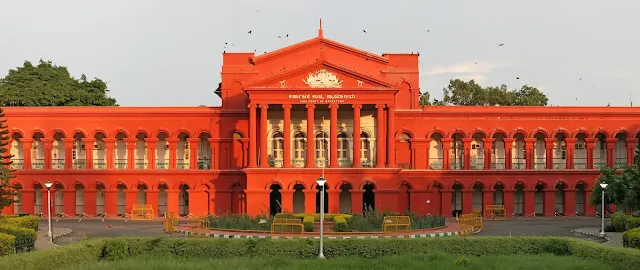In a landmark judgment, the Karnataka High Court addressed the boundaries of legislative immunity concerning derogatory remarks made by legislators within the House. The case centered on BJP MLC CT Ravi, who was accused of using offensive language against Women and Child Development Minister Laxmi Hebbalkar during a session of the Karnataka Legislative Council. The court's decision clarified that while Article 194(2) of the Constitution provides certain protections to legislators, these do not extend to criminal acts that have no nexus to legislative functions.
The Incident: Allegations of Derogatory Remarks
On December 19, 2024, during a heated exchange in the Legislative Council, CT Ravi allegedly referred to Minister Hebbalkar using a derogatory term. The incident occurred after the House was adjourned, leading to debates about the applicability of legislative immunity. Minister Hebbalkar filed a complaint, resulting in Ravi's arrest under Sections 75 and 79 of the Bharatiya Nyaya Sanhita, which pertain to outraging the modesty of a woman and using words or gestures intended to insult a woman's modesty.
Legal Arguments: Legislative Immunity vs. Criminal Conduct
CT Ravi's defense argued that his statements were protected under Article 194(2) of the Constitution, which grants legislators immunity for speeches made within the House. However, the prosecution contended that the alleged remarks had no connection to legislative business and thus did not qualify for such protection. The court examined whether derogatory comments, especially those targeting a woman's dignity, could be considered part of legislative proceedings.
Court's Analysis: Defining the Scope of Immunity
Justice M. Nagaprasanna, presiding over the case, emphasized that while Article 194(2) provides certain immunities, these are not absolute. The court stated, "Spoken word in the Legislature by the Legislators would ordinarily come within the immunity under Article 194(2) of the Constitution of India, but not in certain exceptional circumstances." It further clarified that judicial review is permissible when parliamentary privilege is projected, but only on a case-by-case basis.
Verdict: Upholding Accountability and Ethical Standards
The High Court concluded that the alleged derogatory remarks, if proven, would constitute an offense under the Bharatiya Nyaya Sanhita and are not protected by legislative immunity. The court remarked, "The alleged word spoken, if spoken, or gesture made, if made, against a woman, certainly outrages her modesty and it above all, can have no nexus to the functioning of the House or no relation to a transaction of the business of the House." Therefore, the court refused to quash the case against CT Ravi, allowing the investigation to proceed.
Broader Implications: Reinforcing Ethical Conduct in Legislatures
This judgment sets a precedent in delineating the boundaries of legislative privilege, emphasizing that ethical conduct must be maintained within the House. It reinforces the principle that immunity provisions are designed to facilitate legislative functions, not to shield members from accountability for actions that violate the rights and dignity of others. The ruling serves as a reminder that the sanctity of legislative forums must be preserved through adherence to both legal and ethical standards.
Conclusion: A Step Towards Upholding Dignity and Accountability
The Karnataka High Court's decision underscores the importance of maintaining ethical conduct within legislative bodies and clarifies the limitations of legislative immunity. By allowing the case against CT Ravi to proceed, the court affirmed that derogatory remarks, especially those targeting a woman's dignity, cannot be justified under the guise of legislative privilege. This ruling not only upholds the principles of justice and accountability but also reinforces the commitment to protecting the rights and dignity of individuals within democratic institutions.










0 Comments
Thank you for your response. It will help us to improve in the future.